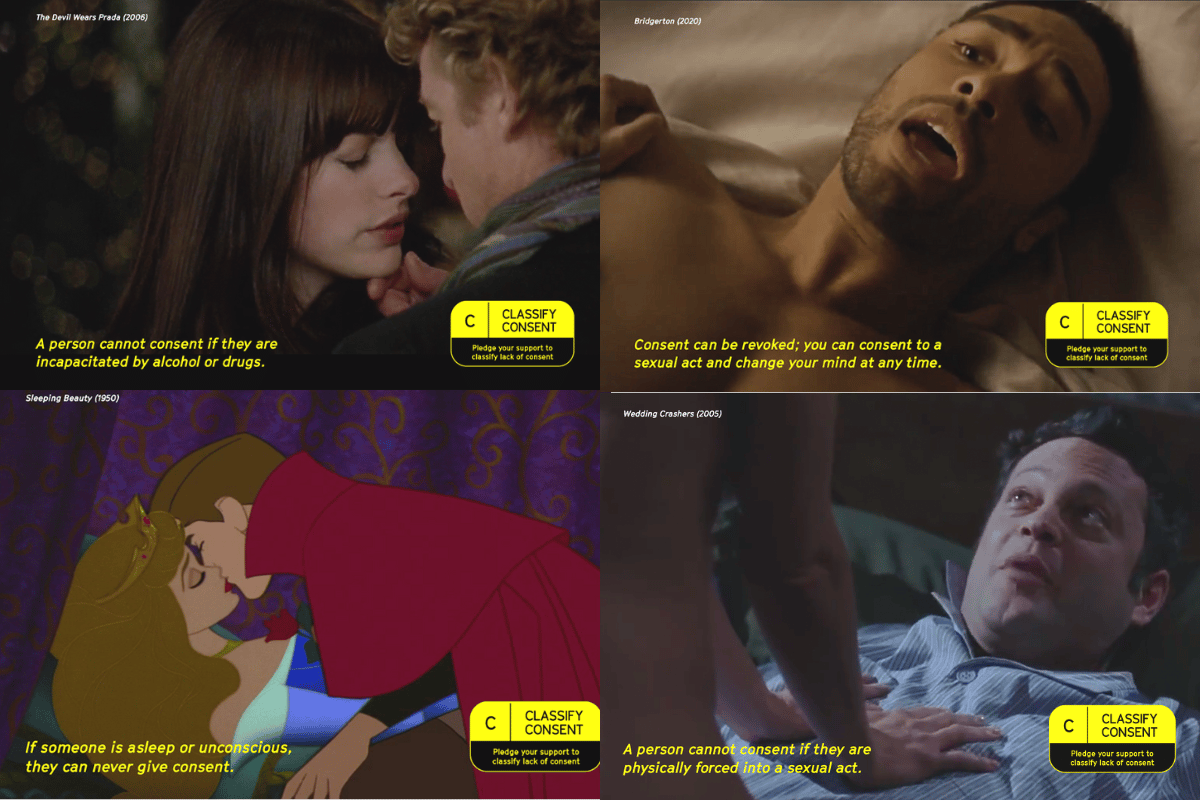
The Devil Wears Prada is one of my all-time favourite movies. There's fashion, fancy magazine jobs, talented actors, funny moments and a good storyline. There's also a bit of romance too. But only recently have we as a collective looked back on this movie - among many others - and wondered whether some scenes aren't as picture-perfect as we once thought.
Namely, the scene where Andy - played by Anne Hathaway - is kissed by Christian - played by Simon Baker.
While in France, Andy meets up with Christian for drinks. As they walk along a cobblestone footpath, with twinkling lights and Parisian music playing overhead, he asks her to come back to his place.
She says to his sexual proposition: "I can't, I'm sorry, I can't. You know, Nate and I just split up a couple of days ago so I can't..." She is cut off by Christian kissing her.
She pulls away, and says: "I've had too much wine and my hearing...my vision... my judgement's impaired..." Once again he kisses her.
"No... I, I barely know you and I'm in a strange city." Once again, she's interrupted and he continues to kiss her.
Finally, she says: "I'm out of excuses."
Looking back on it with today's understanding of consent, it no longer feels romantic. Instead, it's pretty uncomfortable. But putting feelings aside, one thing is clear - there is a lack of consent depicted in this scene. And that's something that Consent Labs, an Aussie not-for-profit collective of passionate young people, wants to address head-on.































































































